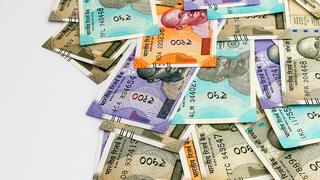Whether you are a working executive or a retiree, you prefer tax-efficient investments. But creating tax-efficient portfolios is a challenge if you are a retiree. As a working executive, you were contributing capital to your investment account. You could invest in assets (read equity) that primarily offered capital appreciation instead of income flows. Besides, you could afford to take more risk because you had active income.
Long-term capital gains tax on equities is tax-exempt, making it more tax-efficient than bonds. Therefore, you looked to shelter bond investments from taxes. Such investments comprised of provident funds and tax-free bonds.
On retirement But after retirement, you have to depend on your passive income to sustain your post-retirement living. You have to invest in income-generating products. Since these are primarily bonds that pay regular interest, you are exposed to high tax incidence.
Interest income is taxable at your marginal tax rate unlike long-term capital gains, which have lower tax rates. You have to, thus, balance taxes and cash flows. If you want lower taxes, you may have to invest in equity but suffer uncertain cash flows.
To start with, categorise your expenses. Your three major expenses at retirement are living expenses, leisure and health-care costs. Next, follow the expense-bucketing approach. Map specific asset classes to each expense bucket. Map bond investments to your living expenses and leisure, while equity could be mapped to health-care costs. Note that health-care expense bucket is set up to meet unexpected surgery costs, not routine medical expenses. This approach involves high tax incidence because a significant proportion of your portfolio will carry stable-income cash flow products such as bank fixed deposits and lifetime annuities.
You should adjust your investment capital to account for the post-tax cash flows. If you need, say, ₹50,000 per month towards living expenses, your bond investments should fetch an equivalent post-tax interest income. If you carry stocks in your retirement portfolio, withdraw money from your investments to meet lifestyle expenses. Cash flows are uncertain, but taxes are lower.
What to do
The question is, are you likely to earn large income even in retirement? If not, cash flow stability should be your priority in your retired years, not saving taxes.
However, if your income levels are high, you should engage a professional accountant to create tax-efficient investment structures. But don’t complicate investments in a bid to save taxes.
The writer is the founder of Navera Consulting. Feedback may be sent to portfolioideas@thehindu.co.in








Comments
Comments have to be in English, and in full sentences. They cannot be abusive or personal. Please abide by our community guidelines for posting your comments.
We have migrated to a new commenting platform. If you are already a registered user of TheHindu Businessline and logged in, you may continue to engage with our articles. If you do not have an account please register and login to post comments. Users can access their older comments by logging into their accounts on Vuukle.